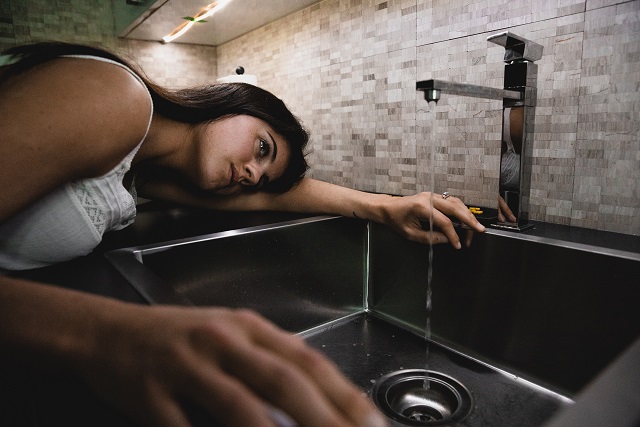Teens and COVID-19
By: Michael Toohey, Psy.D. | September 11, 2020

Teens have difficult times during COVID-19. They miss seeing their friends and classmates in person. Socializing with peers is an important part of teen development while COVID-19 creates a social distancing challenge. The big letdown of not attending graduations, proms, sports, or college visits means many teens feel frustrated, depressed, irritable, annoyed, and sad.
Healthychildren.org created a list of practical things you can do to help your teen through this difficult time, and it involves the entire family working together to create a new normal.
Help your teen to create a healthy and productive routine
- Stick to a schedule that works with online learning. Set a time to wake up, exercise, shower, get dressed, have breakfast, or whatever teens need to start the “school day.” If it helps, allow your teen to sleep in a little later than usual. Shut down cell phones as they would be in class and while they do schoolwork. Shut the TV off too during school hours and limit time watching the news. Plan mini breaks and a 1-hour lunch break.
- Make dinner a transition time between the “school day” and the evening. Dinner gathers the whole family together to talk and share a meal. Try fun conversation starters such as “My favorite part of today was…” or “Today I am grateful for….” Your family may choose to observe a quiet moment together at this time. Help teens keep their usual sleep time routine so they stay prepared for learning each day.
- Allow “down time.”It’s normal for teens to crave more privacy from their family. Give them space for some quiet time, creative time, music time, or to virtually hang out with friends. This can help ease any feelings of isolation from their friends or difficulties with changes in routine.
Communicate honestly and openly
- Share information about what is happening in a calm and factual way to help ease their concerns about the virus. Discuss facts about COVID-19 and correct misinformation when you hear it. Reinforce the basics like the importance of frequent hand washing and not touching their face.
- Stress that staying home saves lives.Talk about how social distancing helps slow the spread of the virus and protects those most at risk. Have a strict “no cheating” rule stressing it’s NOT okay to hang out with friends in person or play outdoor sports like basketball and softball.
- Talk with your teen about how they feel during the pandemic. Watch for signs of struggling or needing more support, or signs of increased suicide risk. Don’t hesitate to contact your pediatrician with concerns.
- Help your teen look forward by helping them shift away from what was lost and identify ways to move on with plans and goals.
Stay safely connected
- Reach out virtually.Allow your teen to stay connected to friends and loved ones during social distancing by phone, text, video chat, or social media. (Remind them to check their privacy settings so they don’t post too much personal information online.) Allow your teen to play games online with friends for relaxation and enjoyment while agreeing on allowable screen time during school days.
- Help others connect.Many teens have expertise in using technology and can teach parents or grandparents how to video chat or use social media. What an opportunity for teens to bring such adults into their virtual world!
Support family and community
- New responsibilities.Routines have changed, and your family may need extra help in caring for younger children or keeping the house clean. Talk to your teen about ways they can play a bigger role. For example, can they help plan or cook dinner? How about teaching their siblings a new dance or fun game?
- Virtual guests.Ask your teen to help you come up with creative ways to stay connected with family and friends on a regular basis. Try hosting a “virtual dinner” by setting up a laptop or iPad at the table with the invited guests. Or use a video conferencing platform like Zoom to have an online party where everyone can see each other.
- Family projects.Suggest your teen take the lead in projects that involve the entire family like organizing family photos or recreating the family’s history. This offers a great opportunity for calls to grandparents who can describe the challenging times of their past and how the family coped with stress then.
- Declutter and donate.Encourage teens to clean out their room, the basement, or declutter the garage and prepare items to donate to charity.
- Volunteer within the community.With social distancing and local regulations, suggest that your teen look online for local opportunities to serve. Show acts of kindness by making someone’s day better with a phone call, text, or social media post. Volunteer to help tutor neighbors’ children or friends online.
Help teens find ways to keep their minds and bodies healthy
- Go for a walk or a run outside, either teens by themselves or as a family. Remind them of social distancing rules and to stay 6 feet away from others.
- Read a book or visit the library online where e-books, audio books, and musical recordings exist in plenty. Research new hobbies or skills to learn.
- Do video workouts. Many exist free online. Some park districts offer access to virtual exercise classes too.
- Watch movies or TV shows together as a family or virtually with friends.
- Create a video blog of life during COVID-19. Or, start a family journal where each family member takes turns describing the day’s happenings.
- Take a virtual tour of a museum, or walk through the Grand Canyon with Google Earth. Challenge your teen to research 10 places they would like to visit someday and show you why.
- Get plenty of sleep!
We all struggle with the ‘groundhog day’ effect, the sameness of every day occurring over and over again. Have something planned for teens and the family for each day next week to give them something to look forward to. Starting or maintaining a garden helps see time passing: blooms come and go, herbs will grow, and fruits and vegetables growing each day helps us see that time indeed passes.
Therapy Changes helps individuals, families, and emerging adults navigate the unexpected challenges that COVID has presented. If your teen or family still struggle, consider contacting us to make an appointment.



